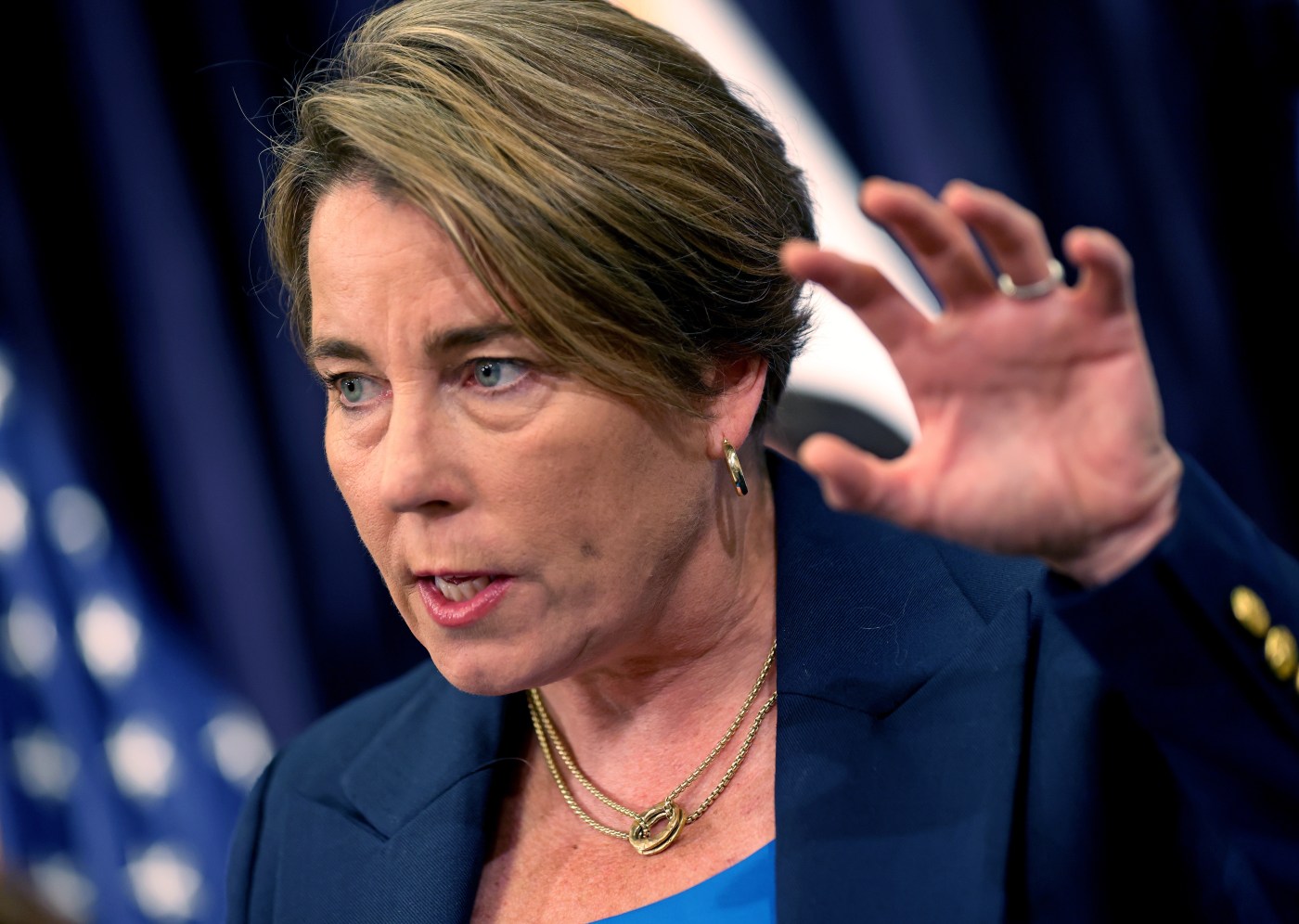
Boston gets economic boost via 225 new liquor licenses after Gov. Healey signs bill
Gov. Maura Healey signed legislation Wednesday that will add 225 liquor licenses to the city of Boston over the next three years, many of which would be targeted to minority neighborhoods with the aim of providing an economic boost.
Healey, in a statement announcing the action, said the bill would “lower barriers” for Boston restaurants and have “long-lasting positive impacts” on the community.
“Neighborhood restaurants play such an essential role in our communities and our economy,” Healey said. “This bill will lower barriers for Boston restaurants to provide the services that our customers are looking for and help them succeed while also supporting local nonprofits, theaters and outdoor spaces.”
The governor praised Boston Mayor Michelle Wu, the Boston City Council, the Boston legislative delegation, and the Legislature for taking respective action to move the bill forward, and restaurant owners who advocated for the change, which Healey said will “have long-lasting positive impacts.”
The Massachusetts House and Senate both approved the legislation — which originated as a local home rule petition approved by the Boston City Council — last Thursday, after a compromise was struck by negotiators from both legislative chambers earlier in the week.
The bill represents the first major expansion of alcohol-serving establishments in Boston since 2014, when 70 liquor licenses were added via a different city home rule petition.
It creates 225 new liquor licenses in Boston over the next three years. Of that amount, 195 would be non-transferable licenses targeted to 13 ZIP codes in Roxbury, Dorchester, Mattapan, Jamaica Plain, Roslindale, Charlestown, East Boston, and the South End, according to the office of state Sen. Liz Miranda, who sponsored the initial Senate bill and represents parts of Roxbury and Dorchester.
State lawmakers have said the licenses would be distributed as five per year, per ZIP code, for three years in those neighborhoods. Of the five, three would be for all-alcohol sales and two would be for sales of beer and wine.
The bill would also tether three new all-alcohol licenses to Oak Square in Brighton, and 15 community licenses for sales of all alcoholic beverages to nonprofits, small theaters and outdoor spaces, House and Senate lead negotiators said last week.
Twelve of the 225 new licenses would be unrestricted, or transferable between different neighborhoods, according to information provided by the lead negotiators, Senate President Pro Tempore William N. Brownsberger, D-Belmont and House Majority Leader Michael J. Moran, D-Brighton.
Prior to the new bill, liquor licenses were capped at 1,400 in Boston, creating a situation where restaurants in underserved neighborhoods are priced out of the so-called secondary market, where liquor licenses are sold for as high as $600,000, often in booming locations like the Seaport, city and state officials have said.
The legislation has sought to resolve that competitive environment, by tethering licenses to neighborhoods that may have been excluded by the pricey sales that occur when a bar or restaurant closes and transfers its license to another owner.
Related Articles
Recent gun violence prompts Boston city councilor to request more police in Dorchester, Mattapan
Wu addresses BPS parents’ bus frustration: ‘Major challenges are being addressed’
Amid criticism, Boston Mayor Wu announces plan to expand BPS free museum program to all city kids
BPS data show two-thirds of Boston school buses late on first day, city councilor presses for answers: ‘Unacceptable’
Rumored Boston mayoral candidates remain mum on plans to challenge Michelle Wu in 2025
“These new licenses are not just business permits; they’re economic catalysts that will directly empower small businesses, especially in communities that have long been excluded from opportunities,” state Sen. Lydia Edwards, D-East Boston, said in a statement after the bill passed the Legislature last Thursday.
The bill’s future had appeared uncertain after House and Senate leadership were unable to come to a compromise agreement by the end of formal lawmaking this past summer, after both chambers had approved the legislation in different versions. The House had favored 205 licenses while the Senate OKed 264.
It was one of several of Mayor Wu’s legislative priorities that stalled by session’s end, the others being her tax classification and BPDA restructuring proposals.
“Each of these licenses represents new life and economic prosperity for an entrepreneur, a business, neighborhood and families throughout our city,” Wu said in a statement after the liquor license deal was struck last Tuesday. “We look forward to these 225 opportunities to address disparities in our city and strengthen economic opportunity in our neighborhoods.”


